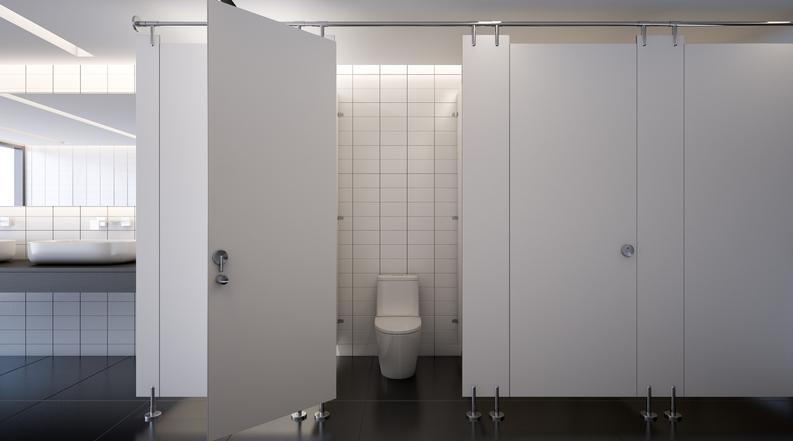A commitment to equity and inclusion has been the hallmark of higher education in the Global North since the 1990s. The advent of the widening participation agenda saw a renewed commitment to promoting equity, diversity and social justice, by ensuring that people from under-represented or disadvantaged backgrounds have fair access to, and success within, higher education.
In other jurisdictions, however, equality and inclusion is more selectively prioritised in tertiary education. For example, in Nigeria, only some universities – primarily government universities – prioritise inclusion of people with disabilities, despite a constitutional enshrined prohibition of discrimination and federal legislation prohibiting discrimination against them.
- Stop treating disability support as an afterthought
- ‘We need to be united, confident and proud of who we are’: thoughts on the Supreme Court ruling
- How to create an environment your employees can thrive in
But backlash to principles of diversity, equity and inclusion (DEI) is now in the global spotlight. President Donald Trump’s anti-DEI agenda is likely to have knock-on effects across the world, as his government targets American colleges’ inclusive admissions programmes and research funding.
While there are broad philosophical arguments to be made about the scope, nature and operation of the right to equality, these extend beyond the current culture wars and have material consequences for individuals. Here we consider an issue that has the potential to become embroiled in debates of “wokeness”, despite its strong foundations in health, dignity and environmental debates. We are talking about toilets, and more specifically about the provision of bins in toilet facilities.
Where have all the bins gone?
Few would argue that it is appropriate to exclude any student from being able to participate in all aspects of student life on campus. Recognising and responding to period poverty is receiving ongoing attention in the higher education sector. Providing access to free or low-cost menstrual products has been recognised as important to supporting learners’ mental and physical health, capacity to engage in learning (particularly on campus) and to decrease stigma and shame around a sensitive issue. However, a complementary need exists around the management of waste.
Since the widespread introduction of electric hand dryers in Australian public washrooms, there has been a marked decrease in the provision of bins in toilets. In female-designated toilets this has mostly been addressed through the provision of sanitary bins. However, the lack of bins in male-designated toilets creates issues for men who menstruate or experience faecal or urinary incontinence or chronic bowel or bladder issues. They are left with nowhere to discretely and hygienically dispose of continence and menstrual products and packaging. This is a growing issue in Nigeria, as electric hand dryers proliferate, with the added complication that factors such as location, management and resources affect whether bins are provided.
Why does it matter?
Chronic or acute urinary or faecal incontinence may impact a substantial number of staff and students in most universities, prevalence statistics show. They require access to sanitary disposal facilities for non-flushable products, such as wet wipes and incontinence pads, as well as for disposing of used stoma products and ostomy bags. In the absence of appropriate disposal facilities, staff and students can inadvertently cause plumbing problems by flushing items. Practical and psychological concerns associated with disposing of hygiene and menstrual products without privacy may cause staff and students to avoid using the toilet on campus. This can, in turn, lead to campus avoidance and constitutes a clear barrier to equitable engagement in campus life.
However, there is a simple sanitary solution, which is, ironically, more common on campus in Nigeria.
Bring back the bins
The provision of bins in male-designated toilets is a relatively simple and sustainable intervention to ensure all staff and students can discretely and hygienically dispose of continence and menstrual products, as well as items such as wet wipes. Simply bringing back the bins can facilitate participation of staff and students who might otherwise be excluded from campus life. It also limits the risk of costly remedial cleaning and plumbing work caused by blockages and flooding from flushing of unsuitable products. Perhaps resource-low countries such as Nigeria, which have retained bins in communal toilet spaces, have reduced maintenance costs by saving resources that would otherwise be spent on repairs and de-clogging efforts?
However, resource implication in Nigeria mean bins are less likely to be placed in cubicles, minimising capacity to use bins privately. Men’s health campaign Bins4Blokes recommends that at least one toilet cubicle in every male-designated set of stalls is equipped with a receptacle suitable for the discrete and hygienic disposal of menstrual and continence products and packaging.
Essential for the use and access of this infrastructure is promoting it – information about the location of sanitary disposal receptacles needs to be clearly displayed before entering the cubicle. This could be as simple as a sticker on the door.
A low-cost solution with high impact
Universities have an obligation to meet the bodily needs of their staff and students, and need to engage with a wide variety of them to ensure these needs are met.
While universities vary greatly in their support for staff and students with a disability and the extent to which they provide trans-inclusive facilities, this practical change can be made. In 2023, the University of Adelaide successfully implemented a programme to install sanitary bins in male-designated toilets across its three campuses. Now, at least one male-designated toilet in each building is equipped with in-cubicle sanitary disposal bins. Yes, this has an ongoing cost implication but it was concluded that it was cost-effective when measured against the significant expense of previous remedial work required when sanitary waste was flushed, and in light of the equity implications.
Perhaps, with DEI under increasing threat, now is the time for other Global North universities to consider similar initiatives. And countries like Nigeria should hold on to their bins, and make them available in toilet cubicles. Let’s not let DEI go down the toilet – instead, let’s embed DEI in our campus toilet infrastructure.
Deanna Grant-Smith is professor of management in the School of Business and Creative Industries at the University of the Sunshine Coast. Anne Hewitt is associate dean (gender, equity, diversity and inclusion) in the Faculty of Arts, Business, Law and Economics at the University of Adelaide. Loki Maelorin is a postgraduate student and welfare officer at the University of Adelaide Pride Club. Chisom Ihekwaba is an independent researcher based in Nigeria.
If you would like advice and insight from academics and university staff delivered direct to your inbox each week, sign up for the Campus newsletter.




comment